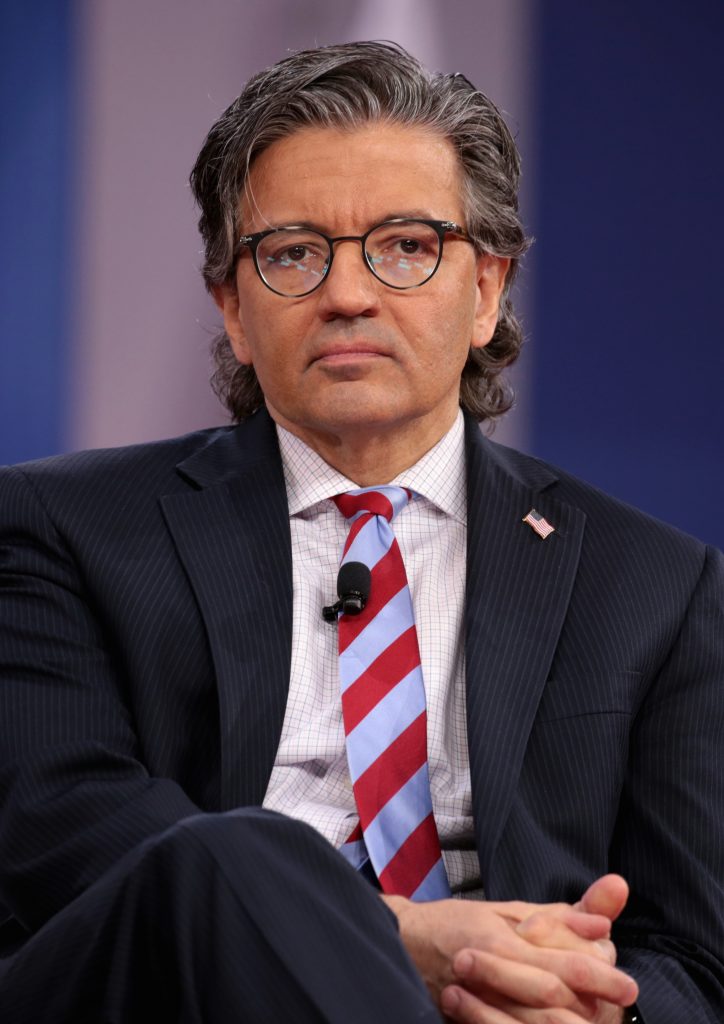
We intend to develop here two reasons why a genetically or economically planned human society, which ignores both social inequality and intragroup competition, whether peaceful or coercive, is, in that regard, intensely disadvantaged in its self-preservation, even doomed to failure in that domain. On the one hand, the projected success of a future sexuated individual in reproducing (and living long enough, and well enough, to become a mature, vigorous sexual reproducer) in the framework of a decentralized struggle for survival and reproduction can be neither measured nor existing in the absence of decentralized sexual reproductive opportunities. And that, just as the rentability of a future allocation of a capital good can be, neither measured, nor even projected, in the absence of a capital good subject to the market price and to the right of private property. To put it in another way, the calculation of the “fitness” of a future sexuated individual is not more possible to a eugenics planning body than the calculation of the economic rentability of a future allocation of capital is possible to an economic planning body. The implementation of a functional order in a human society necessarily passes through the acceptance of these two cosmic laws that are the respective impossibilities of a (centrally) planned eugenics and of a (centrally) planned economy. On the other hand, there are at least two other cosmic laws whose acceptance is necessarily required for a functional social order in the human species: namely the fact that physical-mental inequality necessarily characterizes a sexually reproducing species; and the fact that decentralized intragroup competition for preeminence, survival, and reproduction is indispensable for the success of a group of vertebrates in intergroup competition for survival and preeminence.
A word on state eugenics
Before we get to the heart of the matter, it is useful that we proceed with some conceptual clarifications on state eugenics, which admits a positive modality (i.e., dedicated to promoting or requiring the transmission of traits considered positive) and a negative modality (i.e., dedicated to disadvantaging or prohibiting the transmission of traits considered negative). The goal of state eugenics, either positive or negative, is not only to reach a population carrying exclusively the traits that it considers positive (or to come as close as possible to it); but to ensure that the members of the population in question are virtually capable of winning individually in a decentralized struggle for survival and reproduction (that nevertheless corresponds to the socio-natural environment of said population) or of compromising their own individual survival and reproduction in the reproductive interest of the population (taken as a whole). By “planner-type state eugenics” or “planning-type state eugenics,” we mean state eugenics that enjoys ownership of individual genetic capital, and which decides who has the right to reproduce and who should reproduce with whom. We will call “state eugenics of the semi-planner type” (or “state eugenics of the semi-planning type”) state eugenics that shows itself to be planning, either in the sole field of positive eugenics, or in the sole field of negative eugenics, but not in both fields. To our knowledge, whereas planner-type (rather than semi-planner type) state eugenics has been found only in fiction, semi-planner (rather than planner) state eugenics has genuinely existed: in England, America, Germany, and elsewhere. It continues to exist at least in China, where the communist administration, notably, renders the authorization for those couples deemed dysgenic to marry conditional on permanent contraception. By “incentive-type state eugenics,” we mean state eugenics that uses incentives (fiscal, for example), but leaves mating decisions to be carried out in a decentralized mode, thus recognizing the authority of the family’s patriarch (over the mating of his offspring) or the freedom of individuals in the choice of their mating partners. To our knowledge, the actually implemented state eugenics of the semi-planner type have classically been (and, as in contemporary China, continue to be classically) state eugenics that, while showing themselves to be notably planning (and not only inciting) in the field of negative eugenics, prove to be only inciting (rather than planning) in the field of positive eugenics. Without establishing the state as the owner of individual genetic capital, a semi-planner-type state eugenics exercises a planning confined, either to the positive field of eugenics, or to the negative field. A state eugenics of the semi-planner type allows that, as far as strictly concerns a given field of eugenics, either the positive or the negative field, decentralized decisions are taken in the allocation of individual genetic capital towards reproductive sexual unions, decisions that he will potentially undertakes to influence (via non-coercive incentives).
When it comes to following a criterion in its planning of reproductions, a planning-type eugenist state has no other possible choice than to take as the criterion of its decision to order or prohibit a certain reproductive union the reproductive success that the offspring that would result from that reproductive union under the planning eugenist state (if the latter were actually ordered by the planning eugenist state and carried out) would reach in a decentralized competition for survival and reproduction (if the offspring in question were founding itself participating in such a competition instead of finding itself under the supervision of a planning eugenist state). For the reason that a (centralized) planning of reproductions is necessarily deprived of a criterion for centralized planning (i.e., a criterion for the centralized selection of those reproductions required, and therefore, authorized) that it can find in itself, which is therefore not borrowed from its representation of the individual planning of an organism meeting decentralized sexual opportunities of reproduction and wanting the best “fitness” for its offspring, a planning eugenist state (what amounts to speaking of a genetically planning state) is necessarily incapable of taking a criterion for selecting ordered (and therefore, authorized) reproductions other than the representation of the reproductive success that the offspring of a hypothetical ordered reproductive union would achieve in the presence of decentralized sexual opportunities of reproduction. By “entrepreneurial economy” or “decentralized entrepreneurial economy,” we mean an economy where the allocation of capital takes place in the context of capital goods subject to private property rights (and to free entrepreneurial competition for monetary profit) rather than in the context of the absence of property rights over capital goods or in the context of central planning by a state that owns capital goods. By “decentralized competition for survival and reproduction,” we mean an (individual) competition for survival and reproduction in the presence of the formal possibility of everyone to take part in said competition and in the context of decentralized sexual reproductive opportunities (rather than centralized due to central planning by a state that owns the genetic capital replacing any sexual opportunity for decentralized reproduction). Just as a planning eugenist state aspires to do as well (or aspires to do better) in terms of “fitness” as decentralized competition for survival and reproduction would, so a state planning the economy aspires to do as well (or aspires to do better) in terms of economic rentability as decentralized entrepreneurial competition would do. Because those two types of central planning are both incapable of planning action, both are doomed to failure in their respective ambitions.
The “fitness” of an individual designates his success in generating an offspring qualitative (i.e., itself happy in said reproductive success) and numerous in the context of a decentralized struggle for survival and reproduction, therefore in the presence of decentralized sexual opportunities of reproduction (what nevertheless includes the scenario where there is only one fertile sexual partner for all individuals of the opposite sex, a scenario comparable to the “natural monopoly” in an economy). Just as the market prices of capital goods can no more exist outside a market for capital goods than the rentability of a certain allocation of capital can be calculated in the absence of market prices, decentralized sexual reproductive opportunities can no more exist outside a decentralized struggle for survival and reproduction than an individual’s “fitness” can exist (and can be calculated) in the absence of decentralized sexual opportunities of reproduction. Just as a state planning the economy intends to dispense with the existence of a market for capital goods in its projection or verification of the rentability of the allocated capital, a state planning eugenics intends to dispense with the existence of a decentralized struggle for survival and reproduction in its projection or verification of the “fitness” of an individual, i.e., the success an individual, if he were in a context of decentralized struggle (for survival and reproduction), would reach in the begetting of a numerous and qualitative descent. Whereas the “fitness” of the individual to be born of the allocation of a certain genetic capital (towards a certain reproductive union) is irremediably prevented (and not only rendered non-measurable and non-plannable) by the absence of decentralized reproductive sexual opportunities under a state planning eugenics, the economic capital allocated by a state planning economy remains allocated profitably or not; but the rentability in question is irremediably rendered non-measurable (and, in that regard, rendered non-plannable) by the absence of market prices for capital goods. The fact that a state planning eugenics is necessarily incapable of forming an idea of “fitness” (since the decentralized sexual opportunities of reproduction are necessarily absent under a state planning eugenics) will not be without incidence on the genetic quality of the engendered population in terms of the ability to live long enough (and healthy enough) to become a mature (and vigorous) reproductive breeder. As the central planning of the allocation of genetic capital to reproductive sexual unions, because of its necessarily erratic character, will generate individuals who would be less and less able to prevail in a decentralized competition for survival and reproduction (corresponding to the socio-natural environment of the concerned population), it will engender individuals who—in the concrete context of planned eugenics—will be less and less able to become vigorous and attractive sexual reproducers or to live long enough to reach sexual maturity.
From gnosticism to transhumanism
In the weak sense, transhumanism covers any doctrine that promotes the « overcoming » of homo sapiens via genetic engineering and bio-robotic engineering (including the implantation of electronic devices in the human brain, what one may call “neuro-robotic engineering” or “the neuro-robotic compartment of bio-robotic engineering”). In the strong sense, transhumanism covers any doctrine that promotes the instinctual, mental emasculation of homo sapiens, and its genetic homogenization (in terms of IQ and physical aptitude), via eugenics and the aforementioned genetic and bio-robotic engineerings—and that, for the purpose of obtaining an allegedly pain-free human existence. By the project of homo sapiens’s instinctual emasculation, we mean the project (dear to transhumanists in the strong sense) of reconfiguring human instincts in such a way that the virile mind (i.e., independent and capable of criticism and dissent) and the virile instincts of territoriality, independent thought, war, selfishness, the enjoyment of luxury and of sexual pleasure, the taste for power and for competition, or the desire to distinguish oneself, are eradicated from the psyche human. To do that, transhumanists advocate, if not planning-type state eugenics, at least eugenics and genetic and bio-robotics engineerings. A transhumanist ideal in the strong sense is not necessarily an ideal in favor of planning state eugenics or even an ideal in favor of state eugenics as such: in other words, the transhumanism in the strong sense adopting state eugenics (either of the planning type or not) is only a modality of transhumanism in the strong sense. But whether it adopts state eugenics or not, transhumanism in the strong sense is doomed to engender a dysfunctional society for the reason that such a society would collide with the cosmic order. Strong transhumanism, and even weak transhumanism, is nothing else than a revolt against the cosmic order: a revolt all the more pronounced in the case of strong transhumanism. In the following lines, we will above deal with transhumanism in the strong sense and use the term “transhumanism” in its strong sense exclusively.
The project of “overcoming” homo sapiens via both genetic and bio-robotic (including neuro-robotic) engineerings necessarily succumbs to what Friedrich A. von Hayek called the “fatal conceit” of omniscience, i.e., the conceit that genetic and neuro-robotic engineerings are able to understand and predict a phenomenon that, in reality, is irremediably beyond human understanding as it is made (and positioned) in the cosmic order. As for the modality of neuro-robotic engineering that consists of implanting behavior-regulating chips in the human brain, it is needless to specify that it falls within the “road to serfdom.” To that cognitive hybris with regard to the cosmos is necessarily added a conceit of omnipotence when the “overcoming” of homo sapiens in question consists more precisely of replacing the human being as he stems from decentralized and spontaneous biological evolution with a “new man” as much emasculated in his instincts and behavior as undifferentiated genetically, socially, and physically-mentally. Here, the cosmos is definitely seen both as totally disorganized and as infinitely shapeable: a clay that is both chaotic and malleable at will. To put it in another way, transhumanism, while denying that there is a certain order in the universe (and a harmony within which humans must find their place), affirms that homo sapiens is able to provide the universe with the order which it supposedly lacks; and, while denying that human existence has any meaning within the universe, asserts that homo sapiens is able (and has) to “overcome” himself—via eugenics and via genetic and bio-robotic engineerings—and to become a being no less omnipotent (and omniscient) with regard to the cosmos than “freed” from his virile instincts and from genetic inequality. In that regard, transhumanism comes as a secularized outgrowth of gnosticism, an outgrowth where rebellion against an evil demiurge turns into rebellion against a vain and chaotic universe; and where the “liberation” from the divine sparks that are human souls with regard to the prison of material bodies, accomplished through knowledge, magic, and the rejection of Yahweh’s commandments, turns into “liberation” (via knowledge, technology, and eugenics) both of human biological nature with regard to the instincts, aptitudes, and inequalities of homo sapiens and of the creative powers of the human with regard to the limits assigned to them by his biological condition.
It is worth specifying that gnosticism is only a part of the larger current of Judeo-Hellenic esotericism that fermented in Alexandria before continuing notably in the Kabbalah, a current that a certain literature hostile to Judaism believes it can amalgamate in its entirety, wrongly, with the only gnosticist modality. Contrary to what some of those studying the distant esoteric roots of contemporary transhumanism claim, gnosticism and transhumanism stand in stark contrast to the Old Testament’s (and by extension, Talmudic and Kabbalistic) conception of the human being and the role that he is in a position to play in the cosmos. In the Old Testament’s mentality, it is true that the human is seen as commissioned by God to co-create the cosmos; but precisely, the mandate of creation that is in question here consists, not of destroying and replacing the work of God (including human nature as God designed it), but of completing and sustaining the cosmos that God has created and delivered to humans. Hence the metaphor of the Garden of Eden that expresses the role of gardener of the cosmos devolved to humans: the role of preserving and crowning divine creation. Here, the human is certainly made in the image of God, or even directly linked to God; but precisely, far from the human being divine or called to render himself divine, he finds himself only in a relationship of (virtual) resemblance to God, a resemblance that he is called to concretize through submitting nature to himself (in the understanding nevertheless of the divine wisdom inherent in the arrangement of creation) and through submitting to the commandments of God: commandments which aim to enable man to discipline his instincts and, in that regard, to accomplish what renders him virtually made in the image of God and virtually capable of co-creating and exploiting the cosmos. That conception of the way in which humans can and must behave with regard to nature contrasts just as much with the sacralization of nature (prohibiting its lesser exploitation by humans) constitutive of certain paganisms as with the condemnation of nature (and its perception as an enemy to be eradicated) constitutive of transhumanism. It is notably perpetuated into well-understood traditional Catholicism, namely the Catholicism of the papal reform of the 11th century, and into American-Protestantism. A secularized echo of that is the notion that man, if he intends to submit to himself nature to the extent possible, is forced himself to submit to nature and to the knowledge of nature. That echo does not only suggest what is possibly the symbolic meaning of the biblical text; it expresses what is a completely “scientific” appreciation both of the way in which the human is inscribed in the cosmos and of the degree to which the human can render himself creator and dominator and of the conditions under which that is possible to him.
Far from order being unknown to cosmic and biological evolution (such as conjectured by the “theory of evolution” in a corroborated mode), a certain order governs inter-particle relations just as much as, to quote Robert Ardrey, “the movement of stars within galaxies, galaxies in their relations with others,” “the orbits of planets about their sun, moons about their planet,” and the “transactions of animals.” Neither the random nature of genetic mutations, nor the undesigned character of evolution, change anything to the facts “that animal treaties are honored; that baboons do not commit suicide in wars of troop against troop; that kittiwakes successfully defend their cliff-hung properties and raise their young; that lions and elephants restrict their numbers so that a habitat will not be exhausted by too numerous offspring,” or, finally, “that when species can no longer meet the challenge of environment, they must quietly expire.” It is true that there are some doctrinal defenses of transhumanism that, instead of denying the order present in the nature, fully recognize the existence of said order, and even conceive of evolution as a designed process and the cosmos as organized on purpose. But precisely, those are inconsistent theoretical devices that, instead of drawing from the existence of the natural order the necessary implication, namely that the submission to the natural order limits and conditions the liberation of the creative and exploiting powers of humans, see homo sapiens as a virtually omnipotent being who will be able (with technical progress) to substitute for the natural order and the present version of the human species a new cosmos and a “new man.” In that regard, the expectation of the “Singularity” (i.e., the day when artificial intelligence will allegedly overtake human intelligence and will henceforth be able to self-maintain and self-improve) in certain modalities of transhumanist faith comes as a twisted and secularized millennialist pattern, the expectation of the biological homogenization of humans and of their instinctual cyborgization and reprogramming when the era of the Singularity comes superseding the expectation of communist equality and of the mental regeneration of humans in the abundance of “grace” when the millennial era preceding the “last judgment” comes. The natural impossibility of planning in eugenics is nevertheless a disappointment for the hopes by the type of transhumanism that favors planned eugenics. The natural impossibility of genetic equality (in a sexually reproducing species) and the natural indispensability (to the functionality of a vertebrates society) of decentralized intragroup competition for survival, reproduction, and preeminence are so many disappointments for the hopes of transhumanism generally speaking, which falls within what Ardrey, without thinking of transhumanism (to our knowledge), called the “philosophy of the impossible.” Namely that, in defiance of properly understood science, “we have pursued the mastery of nature as if we ourselves were not a portion of that nature;” as if nature were not our “partner” (rather than our “slave”) and the “laws applying to us” were not “applying to all.”
An ambiguous notion, “natural law” can designate, among other things, an allegedly objective categorical injunction (such as the injunction “You shall not covet your neighbor’s wife nor his servant”); a necessary regularity in the cosmic order; a categorical injunction allegedly objective and allegedly inferred from human nature (as the principle of non-aggression allegedly is); a functional and universal human rule of law; or a functional human rule of law rendered functional by its formulation and implementation of all or part of the implications of a certain cosmic regularity for the functionality of human society. In the present article, we will call “natural law” a certain necessary regularity of the cosmic order that, on the one hand, renders functional a certain rule of human law formulating and implementing all or part of what that factual regularity implies in order for human society to be functional; which, on the other hand, renders dysfunctional any rule of law undertaking to transgress all or part of the implications of that factual regularity for a properly functional human society. Any functional human rule of law is functional in that it contributes, if not to the preeminence of the group, at least to its survival (in specifying that preeminence is an asset for survival). Any functional human rule of law does not derive its functionality from the fact it formulates and implements an implication of a cosmic regularity; but any human rule of law that (like the collective ownership of economic or genetic capital) undertakes to get rid of a certain implication by a certain cosmic regularity is ipso facto rendered dysfunctional. Precisely, the necessity of the calculation (of monetary profit or of profit in terms of “fitness”) for planning action in economy or in eugenics is one of the “natural laws” (in the aforementioned sense) that jointly render dysfunctional the legal basis of decentralized entrepreneurial competition and the legal basis of decentralized organismic competition for survival and reproduction; and jointly render dysfunctional the collective ownership of capital goods and the collective ownership of genetic capital. Just as economic planning is in rebellion against the natural law of the need for anticipated market prices in the elaboration of economic plans (what may also be called “the law of the impossibility of planning (centrally) an economy”), planning in eugenics—and, in that regard, transhumanism of the type turned towards planned eugenics—are in rebellion against the natural law of the need for anticipated sexual reproductive opportunities in the elaboration of anticipations on the “fitness” of a projected newborn (what may also be called “the law of the impossibility of planning (centrally) eugenics”). Whether or not it is of a type supporting planned eugenics, transhumanism is also in rebellion against at least two other natural laws.
Although Robert Ardrey sometimes lacked clarity as to the meaning in which he spoke of “natural law,” and although he did not tackle (to our knowledge) the theme of transhumanism, we owe him in The Social Contract the identification of those two other natural laws against which transhumanism rebels (in vain): namely “the law of inequality” in species with sexual reproduction; and « the law of equal opportunity » in vertebrate species. The law of inequality is the law that genetic inequality, and therefore physical-mental inequality, is inevitable in a sexually reproducing species. For its part, the law of equal opportunity is the law that the equal opportunity of the members of a vertebrate society to take part in the « disorder » of the decentralized intragroup competition to survive, reproduce, and occupy a high position in the “pecking order” is an indispensable instrument for sorting out and making good use of individual aptitudes for the success of a group of vertebrates to perpetuate itself. By “decentralized intragroup competition for survival, reproduction, and preeminence,” we mean an intragroup competition (peaceful or coercive) for survival, reproduction, and preeminence that is formally open to everyone in society; and which operates in the company of unhindered social inequalities (including innate ones), in the context of decentralized sexual opportunities of reproduction, and in the presence of a hierarchical order formally open to social mobility and to the recomposition of elites. In view of those two natural laws that are the law of inequality and the law of equal opportunity, a human social order that hinders or ignores any social inequality (including hierarchical) will be rendered not less dysfunctional than a human social order that hinders or ignores any formal system of intragroup decentralized competition (including decentralized competition for preeminence). A transhumanist social order, i.e., repressing just as much any genetic inequality (in addition to any social inequality) as any genetic existence of a virile instinct (in addition to any social existence of decentralized intragroup competition), will be rendered all the more dysfunctional. Besides, whether the planning of reproductions consists of planning acts of carnal mating between individuals or of planning in vitro fertilization, a transhumanist social order of the planning type (i.e., of the type in favor of planned eugenics) will be rendered dysfunctional as much by its attempt to transgress the natural laws of identity and equal opportunity as by its attempt to transgress the natural law of the impossibility of planned eugenics. On that subject, the society depicted in Brave New World comes as a borderline case of a transhumanist society of the planning type, in which genetic inequality is accepted (albeit planned) and in which instinctual emasculation remains incomplete (albeit largely advanced), with notably the quest for sexual pleasure persisting in society. The fact remains that, precisely, genetic reproductions and inequalities are planned there (and that, without the novel portraying the nonetheless erratic character of genetic planning, which is necessarily incapable of planning); and that intellective emasculation (i.e., the suppression of any mental capacity to think in a virile, therefore independent and critical, mode) is complete there, with no human stemming from planned eugenics in the depicted society proving able to think for himself.
What dismays the transhumanist with genetic inequality (and, by extension, social inequality) and intragroup or intergroup competition (and the instincts associated with it) is fundamentally that those things create “suffering,” “wickedness,” “violence,” and “tearing” in the world. When it comes more precisely to intergroup warfare or the decentralized intragroup competition for survival, reproduction, and preeminence, another reason for dismay in the transhumanist, not less fundamental, is that the disorder associated with it is thought to be an outright aberration, a horror that should be replaced with a total order. To the indispensability of economic and juridico-political inequalities (including those attached to birth) for a functional human society responds, however, the not less indispensable character of the disorder linked to an “equal opportunity” offered to all members of society. But “the equal opportunity” whose implementation is in question here (if one wants human society to be functional) does not reside in the equality of formal or material starting conditions, what would contravene the aforementioned principle to allow all inequalities to flourish, including those associated with birth. “The equal opportunity” that is in question here consists of a formal equal opportunity to take part in a decentralized intragroup competition for survival and reproduction, as well as for the escalation of the group’s hierarchical order and the occupation of a high position within said hierarchical order. That struggle for preeminence takes the form of what biologist Vero Copner Wynne-Edwards described as a “struggle for conventional prices by conventional means.” A fact which (to our knowledge) was not raised more in Mises than in Ardrey or Wynne-Edwards, the entrepreneurial competition for monetary profit only makes to deploy (in the economic field) the competition for “conventional prices” (in that case, monetary profit) by “conventional means” (in that case, the allocation of economic capital) that is at work in any functional vertebrates society, the losers in entrepreneurial competition (i.e., those entrepreneurs who are most mistaken or are the latest in the allocation of capital in anticipation of changes in investment or consumption demand) seeing themselves constrained to a low or negative income (and, in that regard, a inferior social position) just as the losers in the struggle for preeminence are relegated to a lower social rung generally speaking. Ultimately, what renders free entrepreneurship functional (in terms of the group’s success in sustaining itself and in facing the challenges met by its survival, including the challenge of preeminence) is notably that such social institution accords with the three natural laws that are the law of inequality (in the sense that entrepreneurial income inequalities germinate from genetic inequalities without paralleling them), the law of equal opportunity (in the sense that entrepreneurial freedom offers everyone an equal formal opportunity to take a chance as an entrepreneur), and the law of the impossible central planning in economy (in the sense that entrepreneurial plans are exercised in place of a central planning body, which would be precisely incapable of planning). To put it in another way, what renders entrepreneurship and entrepreneurial freedom beneficial to the group is notably the fact that they fit into harmony with the cosmic order.
The impossibility of planned eugenics: a neo-Misesian argument
Ludwig von Mises defended freedom (including entrepreneurial) at a time when the academic consensus was that the central planning of an economy works, as well as a semi-planning state eugenics of the sterilizing type and of the transhumanist type (although the term “transhumanism” would only be forged in the 1950s, by a Julien Huxley approving the totalitarian world prophesied and denounced by his own brother Aldous). The officials of the Communist Party of China, as well as the men of the superclass, are both counting on the renewal of such consensus. In addition to his convincing demonstration of the impossibility of economic calculation for a planning committee, Mises had some very appropriate remarks on state eugenics of the planning or semi-planning type: namely that the latter, as Mises writes in his epilogue to Socialism, “aims at placing some men, backed by the police power, in complete control of human reproduction;” and that “as every supporter of economic planning aims at the execution of his own plan only, so every advocate of eugenic planning [or semi-planning] aims at the execution of his own plan and wants himself to act as the breeder of human stock,” the criteria retained to judge the physical or psychological traits that deserve to be preserved varying from one eugenics plan to another. It is nevertheless regrettable that Mises did not distinguish between state eugenics of the planning (or semi-planning) type and state eugenics of the inciting type, implicitly reducing any state eugenics measure to a eugenics of the planned or semi-planned type in his references to “eugenics.” It is not less regrettable that he did not point out that the variance of the criteria retained in state eugenics devices to judge the traits worthy of being transmitted was, in part, due to the own variance of the criteria for social selection of surviving individuals (as opposed to those of selection criteria for individual survivals that relate to the natural and climatic environment), which vary according to society (as the natural selection criteria of those who will survive long enough to achieve sexual maturity vary depending on the natural environment).
Also and above all, Mises did not notice (or did not come across as noticing) that his argument in favor of the impossibility of economic planning (i.e., the central planning of the allocation of economic capital to the branches of activity, within the framework of the collective ownership of said economic capital) was transposable to genetic planning (i.e., the central planning of the allocation of genetic capital to reproductive sexual unions, within the framework of the collective ownership of genetic capital ). A planning eugenic state is certainly able to get an idea of the success of a hypothetical future newborn in reaching sexual maturity and vigor in the joint framework of its social selective environment and of its natural selective environment. It remains incapable as much of giving oneself a criterion for selecting the required (and therefore, authorized) reproductions other than the “fitness” of the offspring associated with them (i.e., the degree to which the offspring associated with them would be able to engender numerous and qualitative offspring if it were placed in the context of a decentralized struggle for survival and reproduction) as of getting an idea of said “fitness” in the absence of anticipated sexual opportunities of reproduction. Under a state planning eugenics, when an individual organism was just born and would be (in all the probable life scenarios) incapable of encountering a decentralized sexual opportunity of reproduction (within the framework of a decentralized competition for survival and reproduction corresponding to the socio-natural environment of said individual organism), seized or not, it is probable that the same organism will fail (even if the planning eugenist state leaves it in peace) to reach sexual maturity or to become a vigorous, attractive sexual reproducer. A state “planning” eugenics is, in fact, necessarily incapable of planning (and, in that regard, necessarily erratic), from which it follows that it will obtain organisms whose “fitness” would be weaker and weaker—and, in that regard, a population who, in the concrete context of planned eugenics, will be less and less qualified for sexual attractiveness and vigor or less and less likely to reach sexual maturity. One easily imagines a defender of planned eugenics retorting that a planning eugenist state may well be incapable of planning, but that all that matters is the success of said state in ensuring that all or part of its population reproduce and that the physical-mental traits that it values are thus transmitted. Yet, the fact is that the only objective criterion for establishing the biological success of an individual organism is that said organism, if it were confronted with a decentralized competition for survival and reproduction corresponding to its own socio-natural environment, would achieve individual reproductive success in at least one probable life scenario (or, in at least one probable life scenario, would contribute to the group’s reproductive success through spontaneous sacrifice). Because over time, the probability necessarily increases that the majority of the individual organisms to be derived from planned eugenics are objective biological failure (due to the fact that the calculation of the “fitness” of a future individual organism is irremediably impossible for the planner), the planning eugenist state is doomed to reach less and less success in producing individual organisms which, in the concrete context of planned eugenics, live long enough to transmit the physical-mental traits that the planning eugenist state values. At least, the ones of those valued traits that are the rarest and most sophisticated. That fatality is comparable to that of shortages and waste in a planned economy, where collective ownership of capital renders economic calculation impossible.
Although Ludwig von Mises and Friedrich A. von Hayek agree to consider the existence of a market for capital goods as a very useful assistant (and in the strict case of Mises: even a necessary condition) of the calculation of the rentability of decisions in the allocation of capital, their respective arguments in favor of such conclusion diverge significantly. Whereas Hayek asserts that in the absence of present market prices for capital goods, the information present on the economic conditions (i.e., demographics, technology, consumer and investor priorities, etc.) of the moment find themselves difficultly communicable to a planning committee trying to calculate the rentability of a certain allocation decision, Mises argues that in the absence of a capital market, a planning committee—regardless of the accuracy of its knowledge of present economic conditions or the accuracy of its anticipation of future economic conditions—finds itself necessarily deprived of an indispensable tool for economic calculation. In the Misesian approach to economic calculation, those of the market prices that are properly required for economic calculation constitute future market prices (rather than present market prices); and economic calculation is based on the uncertain anticipation of said future market prices (rather than on the certainty of current market prices). But even in the case where a planning committee would enjoy complete omniscience as to present economic conditions and perfect accuracy in its anticipation of future economic conditions, he would remain incapable of calculating the rentability of an allocation decision. In the Hayekian approach to economic calculation, a planning committee would be quite able to practice economic calculation in the presence of perfect omniscience as to the current economic conditions (and that, despite the uncertainty weighing on future economic conditions). Mises’ argument against the possibility of economic calculation under a central planning regime goes even further and affirms the praxeological rather than cognitive origin of the impossibility of economic calculation for a planning committee—namely that the latter, even in the presence of perfect omniscience about the present and of a perfectly correct anticipation about the future, would remain deprived of an instrument indispensable to the type of action that is economic calculation. In other words, market prices as Mises sees them, present or future, do much more than communicate a certain information: they render said information usable for economic calculation, while a planning committee is necessarily incapable of integrating into an economic calculation the information he has about the present or the forecasts he makes about the future (however perfect they are). Besides, those of market prices that are important for the economic calculation as conceived by Mises are the future market prices, the entrepreneurial task including the anticipation of the latter and the allocation of capital on the basis of said anticipation.
For our part, we are of the opinion that in the presence of perfect omniscience about the present economic conditions, the economic calculation would certainly be dispensable to a planning committee in the strict case of a static economy, where the committee’s blind “groping” would allow it in the long run to determine the correct allocation of capital; but that economic calculation, even in that scenario of a static, perfectly known economy, would still remain impossible. When it comes to planning in a dynamic economy, economic calculation is indeed indispensable for the committee—even in the case where the committee has perfect information about the present conditions and an exact anticipation of future conditions. In the absence of a capital market, economic calculation is not less impossible in the context of a static economy (and that, regardless of the accuracy of the information in the hands of the committee) than in the context of a dynamic economy, and that, regardless of the accuracy of the committee’s knowledge of the present and the accuracy of its anticipation of the future. On the question of economic calculation under a regime of collective ownership of capital, we therefore subscribe to Mises’s argument rather than to Hayek’s one. In the presence of moving economic conditions, a task incumbent on the one who allocates a capital good is to anticipate future changes in economic conditions, changes that are irremediably uncertain. In the absence of ex ante anticipation of future market prices and of ex post verification of those expectations (via the profit experience: positive or negative), it is respectively impossible to adapt ex ante the allocation of capital to the idea that one has of future changes in economic conditions–and impossible to adapt ex post the allocation previously carried out to the actual changes encountered. The problem for the one who allocates some capital good is not only to be able to (correctly) anticipate the future; it is also to be able to proceed with economic calculation in view of the elaborated expectations (and that, whether the calculation is correct or incorrect), the impossibility of economic calculation applying as much to a planning committee with incorrect forecasts as to a committee with correct forecasts. It is not fortuitous that the joint perception of time as cyclical—and of any technical or economic innovation as a transgression of the cosmic order—has been characteristic of some of the historical societies ignoring, if not the private ownership of capital, at least the use of money. Such “cosmological” beliefs are quite consistent with a static (or relatively frozen) economy. Through Western-type Christianity, especially the Catholicism of the papal reform and American-Protestantism, individualist economic law (inherited from Rome) and the Old Testament’s conceptions of time as linear—and of the human as mandated to bring to the world as much technical and economic as cognitive progress (and, in that sense, to co-create divine creation)—played a decisive role in the cultural awareness process through which the West started encouraging and judging possible, even inevitable, economic and technical progress in a capitalist framework. Precisely, a chimaera of the USSR—in congruence with its “cosmological” beliefs of the Marxist-Leninist type, a secularized outgrowth of Christian millenarianism—was to expect to conciliate the establishment of collective ownership of capital with the perpetuation of the economic progress associated with prior capitalist economies.
Like Nazi Germany in its day, there is little doubt that Xi Jinping’s China would like to conciliate, one day or another, the central planning of genetic capital with the perpetuation of the biological progress previously associated with the decentralized process of mutation and selection. The implementation of such an enterprise of eugenics planning, under the aegis of a Beijing committee, would be no less erratic than the economic planning of Mao Zedong’s time. Whether it pursues the establishment of a perfect physical-mental homogeneity or remains attached to a certain inequality in that area, whether it is concerned with engendering exclusively servile individuals or intends to engender (also or only) geniuses, therefore independent and creative minds, genetic planning, i.e., the planning of reproductive unions and births, is simply unable to anticipate with certainty the future of genetic conditions. Besides, it is rigorously impossible for its expectations, true or false, to translate into a calculation of “fitness.” Ludwig von Mises, who in Human Action correctly noted that “men cannot improve the natural and social conditions which bring about the creator and his creation,” but that it is both “impossible to rear geniuses by eugenics, to train them by schooling, or to organize their activities” and possible to “organize society in such a way that no room is left for pioneers and their path-breaking,” nevertheless refrained from investigating the reason why (central) planning in the genetic domain—in other words, state eugenics of the planning type—cannot be able to plan the genetic occurrence of geniuses. At the very least, the genetic occurrence of geniuses who are not objective failures of biological evolution, i.e., are not organisms who, if they were placed under the circumstances of a decentralized struggle (for survival and reproduction) corresponding to their socio-natural environment, would not be up (to survive and reproduce) in any probable life scenario. The absence of a Misesian argument against the possibility for planning eugenics to plan the genetic occurrence of geniuses who would be up to the task in a decentralized struggle for survival and reproduction (or would be so in at least one probable life scenario in the context of said struggle) is all the more regrettable as Mises only had to point out that the impossibility of economic calculation for the economic planner was transposable to the calculation of “fitness” for the eugenics planner. The anticipation of a profitable market price in monetary terms is to the entrepreneurial allocation of economic capital to a branch of activity what the anticipation of a sexual opportunity reproductive (i.e., engendering offspring), decentralized (i.e., whose establishment is not a matter of central planning, but of the spontaneous interaction between individuals: whether peaceful or coercive), and eugenic (i.e., optimal in terms of the offspring’s genetic quality) is to the organismic allocation of genetic capital towards a sexual union. It is no more possible to calculate the rentability of the projected decisions in allocating the capital in the absence of anticipated market prices than it is to calculate “fitness” (i.e., the rentability in terms of the number of qualitative descendants engendered in a decentralized struggle for survival and reproduction) of a projected newborn in the absence of the anticipation of decentralized sexual opportunities of reproduction. The evolution of economic conditions (in the context of a dynamic economy) is no less uncertain than the evolution of genetic conditions. Besides, a planning committee, whether it is responsible for planning the allocation of economic capital (to various branches of activity) or the allocation of genetic capital (to various reproductive unions), is doomed to wander in the dark—for lack of being able to take into account anticipated market prices in the calculation of the projected rentability of an economic capital soon allocated to a branch of industry or anticipated decentralized sexual opportunities of reproduction in the calculation of the projected “fitness” of the individual who will be born hypothetically from the forthcoming allocation of a genetic capital towards a mating.
Anticipation of future costs and benefits (in terms of rentability) in a programmed allocation of economic capital based on the uncertain present anticipation of future economic data is no less impossible outside of a decentralized, peaceful competition between owners (or borrowers) of productive goods anticipating in monetary terms the expected costs and benefits than the anticipation of future costs and benefits (in terms of reproductive success in a decentralized struggle for life and reproduction) in a programmed allocation of individual genetic capital grounded on the present uncertain anticipation of future genetic data (including future mutations) outside of a decentralized competition—whether peaceful or coercive—between individual organisms anticipating the number of descendants resulting from the seizure of an anticipated sexual opportunity, whether coercive or voluntary. In a human society, individual planning in the presence of a peaceful, decentralized economic competition between entrepreneurs anticipating (in a climate of uncertainty) the future monetary prices attached to capital goods subject to private property rights is no less necessary for the establishment of a superior economic scaffolding (in terms of viability and complexity) than individual planning in the presence of a decentralized biological competition (for survival and reproduction), whether peaceful or coercive, between individual organisms anticipating the uncertain future of genetic data (including future genetic mutations) is necessary for the establishment of a superior genetic scaffolding (in terms of viability and complexity). In genetics as in economics, the decentralized order is more viable and more complex than the planned order, which is doomed to remain rudimentary (at best) by reason of the fact that the action of planning is impossible for a planning central body. What renders economic or genetic planning impossible is not the volume (and the dispersion) of information about the present genetic or economic data: in other words, it is not the fact that said information is too large and too much dispersed in order for it to be communicable to a human brain, or even to a computer, responsible for economic or genetic planning. Nor is it the uncertainty weighing on the future. Whatever the information (about the present genetic or economic data) in the hands of the planner or of the planning committee; whatever the accuracy of the anticipation (about future genetic or economic data) on the part of the planner or of the committee, planning is irremediably incapable of a planning action (i.e., incapable of determining and handling means for planning purposes)—and that, by reason of the fact that, outside of anticipations of future profits and losses (in monetary terms or in terms of the qualitative descent linked to the seizure of a decentralized sexual opportunity), it is impossible for anyone, even a computer, to calculate “fitness” or economic rentability.
The changes to come in economic conditions are just as uncertain and unpredictable as the genetic mutations in a future newborn. Neither the planning of reproductions, nor intervention on the genome of the embryos, can allow a central planning committee to remedy such uncertainty. But, besides, in order to calculate the “fitness” of a future newborn, the committee would have to come to terms with anticipating the decentralized sexual opportunities of reproduction in the future existence of said newborn, which is for it structurally impossible for the reason that central planning supersedes the possibility of such opportunities. Just as a man and a woman who have just mated cannot anticipate with certainty the genetic condition of the offspring hypothetically resulting from their carnal relationship (and that, whether their mating is unplanned or falls within the decision of a reproductions-planning committee), a biologist working on the genome of an embryo cannot anticipate with certainty the genetic mutations that his intervention will cause (and that, whether the biologist in question carries out his intervention in the context of a central planning of births or in the presence of decentralized sexual reproductive opportunities). Besides, if the intervention or mating is carried out under a regime of central planning of reproductions (i.e., a regime of collective ownership of genetic capital), a biologist-interventionist or a duo of future parents cannot calculate the “fitness” of the future newborn on the basis of their anticipations about said newborn. What renders central planning in economy or in genetics impossible is a “praxeological” rather than cognitive problem: a central body of economic planning is no less deprived of the possibility of planning action (i.e., the action consisting of determining and using means in view of a pursued planning) than is a central body of genetic planning. Outside of the ex ante anticipation of decentralized sexual opportunities of reproduction (in the future life of the future newborn) and the ex post verification of that anticipation, it is respectively impossible to have an ex ante idea of what would be the reproductive success of said newborn (in a situation of decentralized struggle for survival and reproduction) and to verify ex post the idea that one had of the “fitness” of said newborn. In that regard, it is respectively impossible to adapt ex ante the allocation of genetic capital to the forecast of the future offspring’s “fitness” and to adapt ex post the allocation of genetic capital to the actual “fitness” of said offspring. Likewise, outside of the ex ante anticipation of the monetary profit associated with future market prices and the ex post observation of the monetary profit (positive or negative) finally encountered, it is respectively impossible to form an ex ante idea of the rentability of a certain planned allocation of economic capital and to verify ex post the idea that one had of the rentability of that allocation. In that regard, it is respectively impossible to adapt ex ante the allocation of economic capital to the expected rentability and to adapt ex post the new decisions in the allocation of capital to the actual rentability of the previous allocation.
As pointed out by Ludwig von Mises in Human Action, even in the scenario (which Mises seems to find conceivable but improbable) where an economic planner, in solving the differential equations of a general equilibrium model, would manage to “solve” without economic calculation “all problems concerning the most advantageous arrangement of all production activities,” and where “the precise image of the final goal he must aim at [would be] present to his mind,” it would nevertheless “remain essential problems which cannot be dealt with without economic calculation.” Those problems are the ones that relate to the identification and implementation of the “successive steps” through which the planned economy should pass so that “the given economic system” be transformed “in the most appropriate and expedient way” and, ultimately, replaced with “the system aimed at.” Contrary to what Vilfredo Pareto and Enrico Barone affirmed, the calculation (via the resolution of differential equations) of an optimum in the distribution and use of the factors of production cannot allow a central planning body to bypass the absence of a market for capital goods. For want of being able to count on anticipated market prices, a central planning body having a perfect knowledge of the optimum to be reached cannot more practice the calculation indispensable to the discovery and adoption of the path leading to the optimum than a mountaineer deprived of his equipment, but knowing perfectly the coveted mountain, can reach the top of said mountain. It is not only false that in the absence of a market for capital goods, it is only difficult (rather than impossible stricto sensu) to know in their entirety the data that the differential equations of the general equilibrium must take into account. Even though knowing said data in their entirety were indeed possible for a central planning body, the Hayekian assertion that economic planning is only arduous (rather than impossible stricto sensu) would still remain refuted by the fact that, in the absence of anticipated market prices, it is quite simply impossible for the planner to channel a planned economy towards the state of optimum, regardless of the information the planner has about the optimum. It is regrettable that Mises did not consider extending to planned eugenics his remark on the impossibility (in the absence of anticipated market prices) of optimizing a planned economy. In the absence of decentralized sexual reproductive opportunities, it is impossible for a eugenics planning body to practice the calculation (of “fitness”) indispensable to the roaming the path leading to an optimum (in terms of the group’s survival and reproduction) in the genetics of a given population. The optimum itself, whether genetic or economic, cannot be discovered outside of the organismic or entrepreneurial experience of profit and loss (in terms of “fitness” or in monetary terms). Just like, from the preferences of the “demanding » people to the most satisfactory and economical use of the technology in force, a part of the economic data from which the differential equations of the “general equilibrium” of a given economy can be constructed—and therefore the economic optimum itself—are not discoverable outside of the entrepreneurial experience of monetary profits and losses, a part of the genetic data (i.e., a part of the data that characterize the nature and function of genes) in a given population (in that case, those genetic data which directly contribute to individual reproductive success in a decentralized competition for reproduction or to individual success in a derived form of said competition, and those which directly contribute to the reproduction of the group to the detriment of individual reproductive success) and therefore the genetic optimum itself cannot be discovered outside of the organismic experience of profits and losses in terms of “fitness” (i.e., in terms of the success in seizing decentralized and reproductive sexual opportunities that allow a large, qualitative offspring) or outside of the account of said organismic experience.
In defense of the possibility of economic planning, Oskar Lange proposed a solution to the problem of economic calculation consisting for a communist state in simulating market prices, in calculating the respective supply and demand for the latter, and in determining forward the price adjusting supply and demand. In the opinion of Ludwig von Mises, responding to Lange, his solution wrongly reduced economic calculation to the one practiced by simple managers, thus ignoring the own economic calculation on the part of entrepreneurs and speculators, which is nevertheless indispensable for the allocation of capitals. The activities of entrepreneurs and speculators, added Mises, cannot be simulated since in the absence of individual responsibility in that area, i.e., the fact of putting their own money at stake, no one would be motivated to behave as an entrepreneur or as a speculator. While Mises’ response to Lange’s solution consisted in pointing out that his model of a communist economy, in addition to ignoring the need for entrepreneurship and speculation, would nonetheless remain unrealistic if, taking into account said necessity, he would ask disinterested and disempowered actors to “play” the entrepreneurs and investors, Hayek’s response was that Lange’s model proposed an impracticable approach due to lack of the required information. For our part, we go further than the respective counter-arguments of Mises and Hayek. Even in the presence of perfect information about the present and perfectly correct anticipation of the future, even in the presence of disinterested and nonetheless involved actors, equilibrium prices cannot be simulated—and that, for the reason that one can no more simulate entrepreneurship or speculation than one can simulate, generally speaking, the things of life. It is simply impossible to know the preferences of the demanding people in the absence of the observation of concrete purchasing activities (and the associated profit, whether positive or negative), and therefore, to simulate the entrepreneurial experience of demonstrated preferences. The impossibility of simulation applies as much to the decentralized sexual opportunities of reproduction as it does to market prices. Surreptitiously, Lange recognized that only a capitalist economy is functional; and that for that reason, a communist economy has no choice but to simulate a capitalist in order to render itself functional. But precisely, one cannot more simulate the entrepreneurial discovery of equilibrium prices than one can simulate the organismic discovery of decentralized sexual opportunities of reproduction. Simulating an entrepreneurial competition in order to discover its result is not less absurd than simulating a military battle or a decentralized competition for reproduction in order to discover its result. Whether you are an entrepreneur, a general, or an organism, there is no other choice than “going to the front lines” in order to be in the picture.
Transhumanism, a revolt against the crowned cosmos
The impossibility for the external observer of a current individual organism (at the stage of childhood or embryo) or the external anticipator of a future individual organism to calculate the “fitness” of the observed or projected organism in the absence of the anticipation of decentralized sexual opportunities of reproduction in the future existence of said organism founds the impossibility of planning genetic evolution, said impossibility in turn founding the two “natural laws” stated by Robert Ardrey. Namely “the law of inequality” (in the strict case of species with sexual reproduction) and (in the strict case of vertebrate species) “the law of equal opportunity.” Unbeknownst to Ardrey (who approached the grasp of this law without ever conceiving it clearly), the impossibility of planning genetic evolution is truly the first of natural laws, the one from which follows the two Robert Ardrey rightly formulated. Whereas transhumanism, in default of necessarily rebelling against the law of the impossible genetic planning, necessarily rebels against “the law of inequality” (i.e., the necessary counterpart of sexual unions, decentralized or not, that is physical-mental inequality), as well as against “the law of equal opportunity” (i.e., the instrument necessary for the exercise of individual physical and mental aptitudes in a way contributing to the collective functionality that is decentralized intragroup competition for preeminence, survival, and reproduction), genetic planning necessarily rebels not less against the law of equal opportunity than against the law of the impossibility of planning genetic evolution. When it strictly comes to genetic planning of the transhumanist type (what amounts to speaking of transhumanism of the planning type), it is necessarily in rebellion against each of the aforementioned three laws. Planned eugenics necessarily joins transhumanism in hostility to “the law of equal opportunity;” and that, in that planned eugenics—without it being necessarily in favor of genetic equality—necessarily aspires to ensure that the social (including hierarchical) destiny of any newborn to come is pre-known and pre-decided from its conception instead of being revealed and engendered by the result of a decentralized competition for survival, reproduction, and preeminence.
Since decentralized sexual reproduction opportunities are necessarily absent in the context of collective ownership of genetic capital substituted for decentralized competition for reproduction, it is not more possible to escape the impossibility of planning genetic evolution in intending to planning for a negative “fitness” (in the reproductive interest of the group) than in intending to planning for one that is positive (if not in the group’s reproductive interest, at least in the individual’s reproductive interest); and that, just as it is not more possible to escape the impossibility of planning genetic evolution in resigning oneself to proceeding without the anticipation of decentralized sexual opportunities of reproduction than in resigning oneself to simulating decentralized sexual opportunities of reproduction. The decentralized sexual opportunities of reproduction that an organismic allocator experiences cannot be simulated alongside a planning committee replacing decentralized competition for reproduction, no more than the profitable prices (in monetary terms) that an entrepreneurial allocator experience can be simulated alongside a planning committee replacing decentralized competition for monetary profit. Genetic planning is not less in rebellion against a natural law (in that case, the law of the impossibility of planning genetics) than is economic planning: in that case, the law of the impossibility of planning economy. Genetic or economic planning shares with transhumanism a spirit of rebellion against the natural order, therefore the order created by God from an Abrahamic perspective. Whoever rebels against all or part of the natural order intends to replace it (in whole or in part) with a new, allegedly better order, thus rebelling against God himself or adhering to the idea that God, if it existed, would deserve one rebels against Him. The Bible can either be taken literally or taken symbolically (as the sages of Alexandria began to do). The mandate of divine origin assigned to humans, according to the Old Testament, to crown creation while respecting the law of divine origin can either be taken literally; either taken symbolically in the sense that the human has a capacity of creation which complements cosmic creativity, but that his own capacity of creation will turn against himself if it comes to believe to be able to transgress the natural laws of this world. Likewise, the transhumanist, communist, anarcho-capitalist, or plannist rebellion against the natural order can present literal gnosticist motives—as is the case, for example, in Karl Marx’s poem titled “Human Pride,” where the poet praises the “demonic confusion” of his own speech and promises to work for the joint fall of the world and of God, “that pygmy giant,” and for the building of a new era on “the ruins of the [elder] world” in “giving to [his] words power of action.” Just like it can present secularized gnosticist motives, in which case said rebellion will start from the idea that God, in default of existing, would deserve to be fought if he did exist.
Whether one takes into account the followers of a properly secularized modality of transhumanism or those of a modality that retains “religious” motives, the human feelings that govern adherence to the transhumanist discourse (beyond its various modalities) remain strictly the same: the rejection of the natural order, therefore the order created by God from a literal gnosticist (or semi-gnosticist) perspective; and a misguided mode of compassion for the weak and the degenerate here below, therefore the failures of evolution from a transhumanist perspective, either secularized or not. Not the compassion that aims to alleviate the fate of those who do not keep up with the decentralized struggle for life, reproduction, and preeminence (more precisely, the specific form that said struggle takes in view of their socio-natural environment); but the compassion that, abhorring selection and the struggles associated with it, represents (and intends to achieve) a society of late times where (both physical and mental) inequalities would be eliminated, where war, power, and sexual pleasure would cease to be pursued things. A dream that inspires the transhumanist program of a final era of humanity in which an emasculated, peaceful, and egalitarian way of life would be established via genetic manipulation and via cyborgization. The idea of a chaotic, cruel nature, from which man must and can emancipate himself (in rendering himself divine and in replacing nature with an order that is exclusively of his own doing), delights the transhumanist, who comes as an intramundane, technophile variant of the gnosticist in that he believes that instead of spiritually detaching himself from the allegedly chaotic nature, the human must—via genetic and bio-robotic engineerings—subvert and replace the material world. Yet, far from nature being chaotic, it is subject to an order that—however cruel and selective it is—nonetheless remains an order. An order that, despite the disorder that accompanies it, is nevertheless accomplished through said disorder notably; and as Robert Ardrey has described it, “what contemporary evolutionary thought can bring to social philosophy is [notably] the demonstrable need for structured disorder within the larger structures of [social] order” so that “without that degree of disorder tolerating and promoting to fullest development the diversity of its members, society must wither and vanish in the competitions of group selection.” The idea that we would continue our promethean gesture of domination of nature in emancipating ourselves from said nature (and the associated selection procedures) is not less deceptive. Dominating our natural environment through technology and economy establishes us, not as deniers, but as continuators of nature, what differs substantially from the transhumanist project of escaping from the selection process (and therefore, of denying, escaping nature). In Abrahamic terms, while the first perspective extends and honors divine creation, the second is of satanic obedience.
Transhumanists are not less mystified by the idea that, in view of the contradictory nature of human instincts, a morality concerned with being based on evolution would only end up erecting mutually contradictory instincts as mutually contradictory norms; and that because of the fact our instincts contradict each other, they are simply dysfunctional and should be eliminated by genetic engineering. That opinion, which stems from yet another misunderstanding of evolution by transhumanists, is wrong as to the sense of an evolutionary morality, i.e., a morality that takes into account evolution and human instincts as they have been produced by evolution. Homo sapiens being a species with instincts not less incomplete (in terms of ensuring the viability of social organization and, more broadly, success in group selection) and weakened (in terms of being the only influence to weigh on human behavior: instead of acquired culture or reason) than chaotic, i.e., in contradiction with each other (and that, despite a certain hierarchy operating itself instinctively, which remains too much relative), “evolutionary” morality will not consist of establishing a certain instinct as a norm: in the mode of the inference “It is natural, therefore it is good.” Said morality instead consists in identifying those behaviors, partly instinctual, partly associated with reason or acquired culture, which will render a group functional (and increase its chances of winning in group selection). Such a functionality, while it is operated in a rigorously instinctual mode in the case of animal societies (other than human), is not assured in the case of human societies, which are jointly constrained to complete the work of nature in this area and susceptible to fail in that area. In other words, “evolutionary” morality is not about morally justifying an instinct on the grounds that it is the product of evolution; but about fulfilling the wisdom towards which the instincts of homo sapiens, “suspended,” according to Robert Ardrey’s wording, “between dicta three billion years old and a foresight nouveau riche, swinging between [instinctual] wisdoms of most ancient origin and a power of both learning and ignorance,” tend imperfectly—due to the weakened, incomplete, and chaotic character of said instincts of homo sapiens, “animal of doubtful future.”
Genetic or neuro-robotic engineerings, the planning of births, physical-mental equalization, or instinctual emasculation are so many horizons coming as a technophile, intramundane variation of gnosticism and bathing in the illusion that the cosmos is simply chaotic and stochastic; and that human beings, although they are a haphazard product of the evolution that takes place in this random, disordered world, are nevertheless able to render themselves the gods of this universe through technology and knowledge, i.e., able to substitute for the allegedly vain and disorderly nature an effective and senseful order. To those hearts misled by gnosticism or its derivatives, it is worth remembering that the cosmos is at the same time evolving and organized, random and senseful, achievable and intransgressible. We human beings, who are made, if not in the image of God, at least in the image of the cosmos, are certainly bound to pursue cosmic creativity (through knowledge, technique, art, or social change); but also to keep in mind that we neither are nor will be gods: that the human pursuit of cosmic creativity must be accomplished with respect for a certain natural order, the transgression of which necessarily results into an immanent punishment. Crowning divine creation, but not subverting it, that is the way for us who, symbolically (if not literally), are both made in His image and made for His law. Subverting divine creation and claiming to render oneself divine in place of God, that is the ill-fated path of hearts misled by a rebellion of satanic obedience, from transhumanists to economic or genetic planers. God wanted for us neither servility towards the universe nor disobedience towards universal wisdom; but the humble crowning of divine creation, the bringing of the final touch, by the creature who remains in its place, i.e., who accepts that it is irremediably like divine instead of claiming that it can render itself divine. From Silicon Valley engineers to superclass men and to the officials of the Chinese Communist Party, transhumanists are in rebellion against the divine creation. An elected nation, America must fight against the “destructionist” forces of transhumanism as it has long fought against those of communism.
The project on the part of the most radical of transhumanists to suppress all violence and all domination of the world stage could only achieve its ends through suppressing or “reprogramming” the atoms and the stars themselves. For, as highlighted by Howard Bloom (without him, to our knowledge, addressing transhumanism from this angle), the very first hierarchical orders, far preceding the pecking orders of chicken, manifested in the assembly of atoms or galaxies. While the proton dominates the electron, of which it determines the central point of the orbit, the black hole or the gravitational center dominates and controls a galaxy. As for the sun, it is metaphorically the king in the feudal order of the solar system: the monarch before whom the planets bow, which see the moons bow before the planets. It is true that, since it seems that it is not felt or conscious (but what do we actually know of it, as it stands?), the violence of stars or atoms as such does not concern transhumanism. But given that violence in the physical sense constitutes a fractal pattern declining at each emergent level of the universe, which sentient or conscious beings have only inherited, the fact remains that transhumanism can reach its goal only in drying up the source of that fractal pattern and reprogramming or replacing the elementary particles. If it turned out that they could not do it, it is likely that they would then opt for a return to nothingness in due form. They would come to terms with setting out to destroy the universe itself—in default of being able to prove to God that they could replace His creation with a morbid and dried up universe. Robert Ardrey did not believe that he was saying so well when he warned us against the “dreary” morning that, “knowing or not,” many of our contemporaries are putting in place, the one “when you and I awake and leopards are gone; when starlings in hordes no longer chatter in the plane trees gossiping about the adventures of the day to come; when the lone tomcat fails to return from his night’s excesses; when robins cease to cry out their belligerent challenges to the bushes beyond the lawn; when the skies lack larks and the shrubbery lacks sex-obsessed rabbits hopping after each other; when hawks cease their eternal, circling searching and the gullery by the rocks falls silent; when the diversity of species no longer illuminates the morning hour and the diversity of men has vanished like the last dawn-afflicted star.” Ardrey expressed himself there in metaphorical terms; but the future he envisioned is literally the future that the most radical of transhumanists want for all of us… humans, leopards, bears, bees, flowers, or dachshunds.
Conclusion
The attitude of the transhumanists towards the cosmos is that of a capricious, angry three-year-old child towards a tower a few centimeters high built with kaplas (namely boards made of Landes pines), that the adults have constructed with the idea that the kid continues their construction through building the roof of the tower with additional kaplas. Because he will refuse to take into account gravity, the weight of the boards, the need to balance the kaplas so that they hold together, the little capricious will fail to build the roof, or even cause the collapse of a part of the tower. Deploring the impossibility of manipulating the kaplas as he pleases, he will get angry with the boards and the tower. With a kick (for example), he will break the tower or what is left of it—unless the adults themselves take charge of destroying the tower (or what is left of it) to give a “good lesson” to the kid, the one that the cosmos has its laws and that they limit and allow the constructive and dominating powers of the human being, and that he must therefore learn (and learn to respect) the cosmic laws if he intends to render himself “as master and owner” of the boards. Just as Ludwig von Mises (rightly) called “[Charles] Fourier complex” the psychological state of fleeing economic reality into an imaginary world that ignores the laws of ours in the economic field, therefore ignores the scarcity of resources, the unpleasantness of work, and the indispensability of market prices for economic calculation, one may call “Julian Huxley complex” the psychological state of fleeing biological reality into an imaginary world that ignores the laws of ours in the field of biological evolution, therefore ignores as much the genetic inequality between the members of a sexual species and the need (for a functional order) of the relative disorder of the decentralized intragroup competition for survival, reproduction, and preeminence among the members of a vertebrate species as the indispensability of decentralized sexual opportunities of reproduction for the calculation of “fitness.”
About the mental immaturity of the transhumanist, who got stuck or regressed to the mental level of the aforementioned brat, one can say what Mises wrote (rightly) about the socialists’ own neurosis. Namely that, “This being the character of the socialist dream, it is understandable that every one of the partisans of socialism expects from it precisely what has so far been denied to him. Socialist [or transhumanist] authors promise not only wealth for all, but also happiness in love for everybody, the full physical and spiritual development of each individual, the unfolding of great artistic and scientific talents in all men, etc. Only recently Trotsky stated in one of his writings that in the socialist society “the average human type will rise to the heights of an Aristotle, a Goethe, or a Marx. And above this ridge new peaks will rise.” The socialist paradise [just like the transhumanist paradise] will be the kingdom of perfection, populated by completely happy supermen. All socialist [or transhumanist] literature is full of such nonsense. But it is just this nonsense that wins it the most supporters. One cannot send every person suffering from a Fourier complex [or from a Julian Huxley complex] to the doctor for psychoanalytic treatment; the number of those afflicted with it is far too great. No other remedy is possible in this case than the treatment of the illness by the patient himself. Through self-knowledge he must learn to endure his lot in life without looking for a scapegoat on which he can lay all the blame, and he must endeavor to grasp the fundamental laws of social cooperation [or of biological evolution].”
That article was initially published in The Postil Magazine’s June 2021 issue











